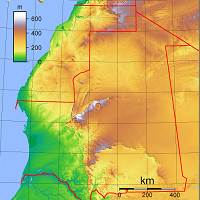As the world marks 400 years since the first recorded African slaves arrived in North America, slavery remains a modern-day scourge. Over 40 million people are estimated to be trapped in forced labor, forced marriages or other forms of sexual exploitation, according to the United Nations...
Africa has the highest prevalence of slavery, with more than seven victims for every 1,000 people, according to a 2017 report by human rights group Walk Free Foundation and the International Labour Office.
-Angela Ukomadu, Nneka Chile 
I can only say that there is not a man living who wishes more sincerely than I do to see a plan adopted for the abolition of slavery. -George Washington 
I read a funny story about how the Republicans freed the slaves. The Republicans are the ones who created slavery by law in the 1600's. Abraham Lincoln freed the slaves and he was not a Republican. -Marion Berry 
The International Labor Organization (ILO) estimates the number of slaves in the world today at around 21 million. Kevin Bales, of Free the Slaves -- the U.S. affiliate of the world's oldest human-rights organization, the U.K.-based Anti-Slavery International -- (and the author of Disposable People: New Slavery in the Global Economy) puts it at 27 million. In which case, assuming even the rough accuracy of 27 million, there are likely more slaves in the world today than there have been at any other time in human history. For some quick perspective on that point: Over the entire 350 years of the transatlantic slave trade, 13.5 million people were taken out of Africa, meaning there are twice as many enslaved right now as there had been in that whole 350-year span.
Democrat, Hypocrisy, Editorial, Liberal, Character, Tolerance
This reminds me of the time when Jesse Jackson was asked to come out against slavery, and the response from his office was "Right now slavery is not on his agenda." Of course not. There's no money in opposing it. -John Hinderaker
Narrative
PORT-AU-PRINCE, Haiti (AP) — Poverty has forced at least 225,000 children in Haiti's cities into slavery as unpaid household servants, far more than previously thought, a report said Tuesday.
Narrative
Two Mauritanian government ministers denied slavery exists in CNN interviews. But CNN spoke recently with the U.S. Ambassador to Mauritania, who painted a different picture of the situation. Jo Ellen Powell says slavery is very real in Mauritania today. She described the practice as "completely unacceptable and abhorrent," and said the American embassy is working diligently to help put an end to slavery in the Saharan nation.
A system exists now by which Arab Muslims -- the bidanes—own black slaves, the haratines. An estimated 90,000 Mauritanians remain essentially enslaved. The ruling bidanes (the name means literally white-skinned people) are descendants of the Sanhaja Berbers and Beni Hassan Arab tribes who emigrated to northwest Africa and present-day Western Sahara and Mauritania during the Middle Ages. 
Narrative
A part of the network's Freedom Project initiative, CNN's John Sutter and Edythe McNamee traveled to the West African nation where an estimated 10-20% of the population lives in slavery, despite a 1981 outlaw of the practice.
Hypocrisy, Liberal, Narrative
In Mauritania, despite good intentions and high-minded words, slavery is still thriving, as it has for 800 years. It is just taking new forms. Dark-skinned men, women and children known as Haratine carry out orders under the threat of being beaten. They work as labourers and shepherds, as servants and cooks, as nursemaids and security guards. They are penniless and uneducated. Their masters are pale-skinned, Arab-speaking Moors.
Hypocrisy, Liberal, Narrative
Mauritania is a north African country in which 20% of the population, 500,000 people, are living in forced servitude. Deprived of even simple rights like having a last name, or retaining control over their children, the slave class is largely made up of black Africans who have been displaced due to a history of tragic events. Colonialism, drought, civil war, and economic power plays (notably China’s recent grasp for control of Mauritania’s fishing industry) have combined to make slavery persistent and nearly impossible to eradicate.
Hypocrisy, Liberal, Narrative
"A captured slave knows freedom, so to keep him you have to chain him," says Mr Messaoud. "But a Mauritanian slave, whose parents and grandparents before him were slaves, doesn't need chains. He has been brought up as a domesticated animal."










